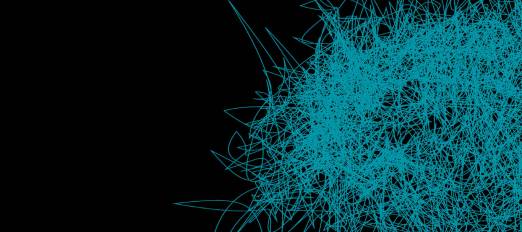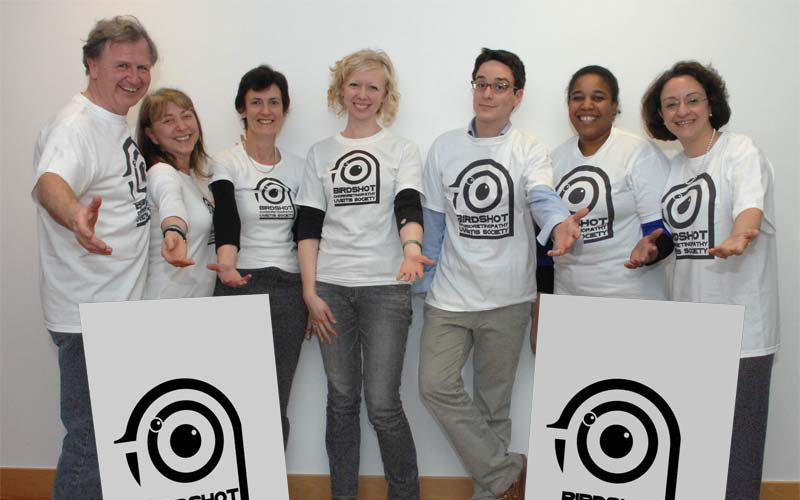UCL Culture is delighted to announce the awardees in the latest round of Train and Engage funding.
Train and Engage is a training and funding program for postgraduate research students, who are looking to connect their work with public groups. We are pleased to announce the 7 successful projects awarded in the latest round of funding and brief summaries are below.
- Siegfried Wagner – Institute of Ophthalmology.
Windows of the Soul.
This project will unite members of the public, patients, and scientists at UCL Institute of Ophthalmology and doctors at Moorfields Eye Hospital to communicate the effect of general health conditions on their eyes using the medium of art. Patients and members of the public will be recruited through clinics at Moorfields, digital callouts, links with charitable organisations and London-based corporate organisations. An art exhibition will be launched in a central London venue consisting of images of how the eye changes in systemic diseases and artwork from patients affected by these conditions. The evolution of original film photographs to modern high-resolution scanning techniques to more recent artificial intelligence methods will be explored in the exhibition. Following the launch, the material will be displayed in the Moorfields Eye Hospital Art Section for four months. A monthly symposium at Moorfields will guide attendees through each piece of work and also provide a platform for discussion with the patients involved in the exhibition. In addition, to expand the potential audience of this project, a website illustrating digitised versions of the content shown will be available.
- Myrofora Kakoulidou – Institute of Education.
Involving children, teachers, parents and researchers in dialogues around school wellbeing.
Considering that children spend a large proportion of the day at school, schools provide an ideal environment to promote child wellbeing by implementing practices tailored to children’s particular needs (Department for Education [DfE], 2018). School-based wellbeing projects that actively involve children, teachers and parents in conversations around school wellbeing may be particularly relevant in post-lockdown times facilitating the transition from the pre-COVID 19 to the new reality.
During this project, Year 5 children (aged 9-10 years old) will be involved in discussions and creative activities around their own school wellbeing and co-create a school blog to share their ideas with their own community. Children’s blog will provide the stimulation for teachers, parents and the project team to bring their different expertise to the table and exchange ideas around wellbeing in schools during an online event.
- Jenny Ray - Psychology and Language Sciences and Olha Pryymak
Embracing the power of art and tea to create positive changes in practice that better support children with speech, language and communication needs.
Jenny will work with children with speech, language and communication needs (SLCN) to discuss and create visual representations of the key research outcomes using Duplo, Lego, paint, mood boards, and online quiz platforms. Children from the whole school will be invited to participate in painting a mural screen for the tea sessions, depicting their ideas about speech and language therapy. In this way, many different children and staff within this east London primary school community can be involved and feel proud of their contributions. Olha and Jenny will then run a workshop with the children with SLCN to explore how they would most like to be supported in their therapy sessions. They will spark the imagination using herbs, leaves, and plants, linking these to keywords and phrases, for example, ‘enthusiasm’ - lemongrass, and ‘take your time’ - chamomile. Children will weave their selected plants into simple mandalas. The events will culminate in an afternoon of tea sessions for the "teams around the child": parents/carers, teaching assistants, teachers, special educational needs co-ordinators (SENCos), headteachers, and speech and language therapists. The children’s visual representations of the research outcomes and nature mandalas will be on display during the tea sessions. Through this gentle coming together in mind and body, we will create an opportunity to share responses, feelings, ideas, and reflections on the research outcomes and create a clear plan with tangible, positive steps going forwards.
- Natallia Kharytaniuk– The UCL Ear Institute.
Living with superficial siderosis – patients’ journey.
This project, consisting of several activities, will provide an insight into the challenges of being diagnosed and living with a rare neurological condition called infratentorial superficial siderosis (iSS), the hallmarks of which are hearing and balance impairment. Through first-hand patients’ accounts and a dedicated information-sharing event we would like to bring together patients with iSS, their families and carers, clinicians and interested members of the public, to share their experience and knowledge, and as a learning opportunity about this rare condition. This event and the patients’ narratives will be recorded and made into a short informative video. These will be shared on a dedicated website set up in collaboration with UCL IoN Stroke Research Centre and EI to further raise awareness around iSS. We will apply for permission for this activity to be featured as part of ‘Rare Disease Day’ and as part of ‘World Hearing Day’.
- Amanda Ford Spora – Institute of Archaeology.
Co-producing a Manga_Zine with teens using digital replicas of ancient objects.
This will be a collaboration with a group of teen participants (aged 13-15 years), who will engage with digital replicas of objects from ancient Sudan and Egypt, as well as artistic pieces created by focus group participants previously; with the purpose of exploring the creation of Manga cartoons as a commentary about ‘authenticity’ of ancient artefacts and the impact of the past in the present. The main output of the project will be a co-produced Manga_Zine of the collected manga commentaries. It is anticipated that the co-produced Manga_Zine of the collected Manga cartoon commentaries will act as a companion piece to viewing the replica objects and their originals, which are part of the Petrie Museum and Manchester Museum. The Manga cartoons and Manga_Zine will be translated into Arabic and produced in both Arabic and English to make it accessible to the source communities of these ancient objects.
- Rebecca Graham– Division of Medicine.
Lungs for Living: How can we promote screening for lung cancer?
During this project, we aim to promote awareness of early detection and lung cancer screening, and to encourage discussion on these topics. Many lung cancers are diagnosed at a late stage, where tumours cannot be surgically removed. Screening for lung cancers in at-risk groups could help to identify these at an earlier and more manageable stage; this is being investigated in the SUMMIT clinical trial. As well as sharing information about the research that we do, the project aims to generate conversations around attitudes towards screening and barriers to attending. Particularly, we would like to explore how COVID-19 has affected the public’s feelings towards screening and how we could make them feel more comfortable with the idea of attending. This will be achieved by engaging with a group who might benefit from screening but may be concerned about attending a non-essential medical appointment in the current public health climate. The project will work with BAME communities which have a high prevalence of smoking and have been disproportionately affected by COVID-19. To explore how best to reach this group, we will collaborate closely with representative members of the public audience to co-design an event intended to engage a wider group
- Jen Datiles – School of Pharmacy.
PLANTS ON OUR PLATES: sharing (hi)stories of botanical foods and medicines.
project description to follow shortly.
 Close
Close




